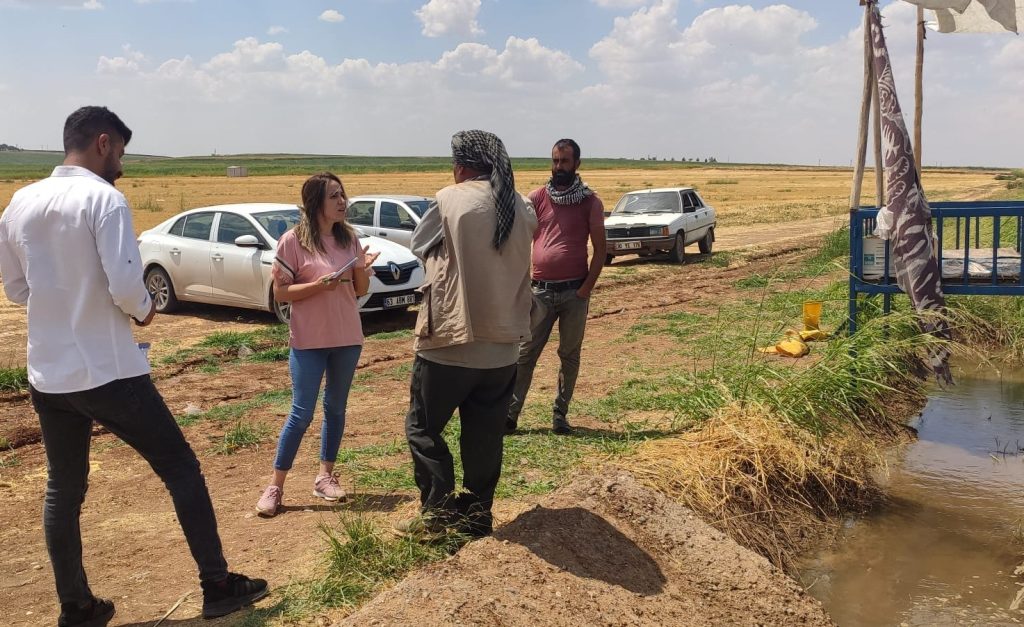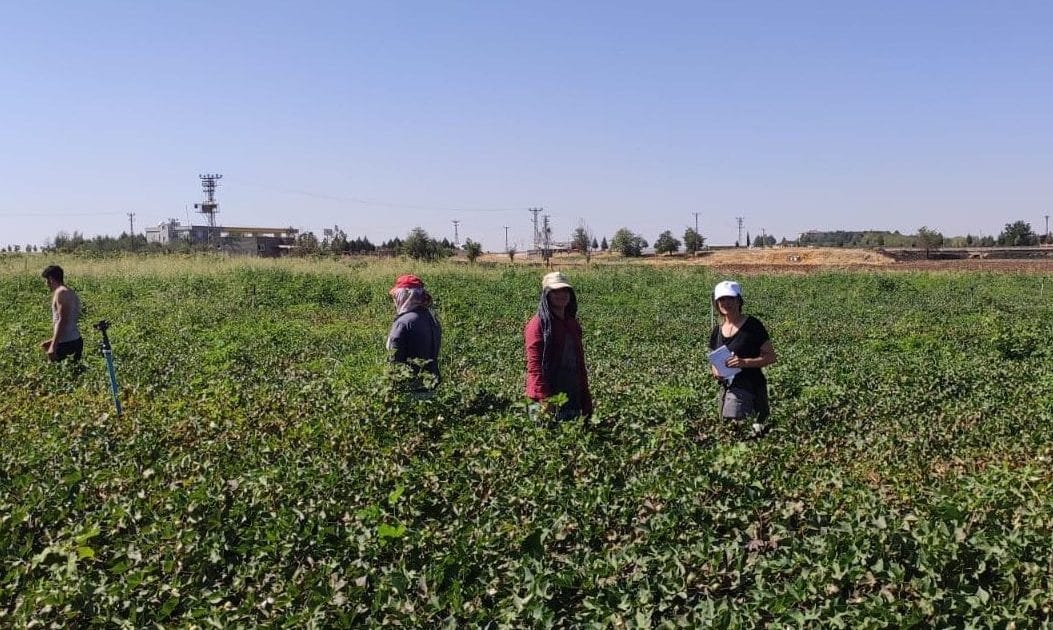Gülan Oflaz, Field Facilitator, GAP UNDP, Turkey
Gülan’s desire to return to her farming roots led her to study to become an agricultural engineer. Combining her hands-on experiences and her expertise, she now works with cotton farmers in Sanliurfa, which sits at the heart of cotton production in Turkey.
In her role as Field Facilitator for GAP UNDP, Gülan and her team are responsible for 150 farmers in 25 villages. They conduct field visits, assess the needs of the farmers in their project areas and deliver trainings on the Better Cotton Standard. Their goal is to support cotton farmers to adopt more sustainable farming techniques and continuously improve their practices.
What led you to work in the cotton sector?
I wanted to help develop and improve cotton production in line with sustainable cotton farming practices, support better working conditions for farmers and farm workers, and carry out activities without disturbing the natural balance of the ecosystem. I’m excited to work in sustainable cotton farming and contribute to this step of its production.
What are the biggest challenges you see in the cotton communities where you work?
There are numerous challenges in cotton production. First and foremost, it’s helpful to remember that it is difficult for any of us to change the habits that we learn from our ancestors, and in this context, farmers are used to growing cotton using the traditional agriculture methods they’ve become accustomed to. For example, we have seen farmers using water and pesticides excessively, regardless of the plants’ needs, and over fertilising the soil without conducting any soil analysis. Many are also unaware of their labour rights and the support they have access to.




Can you share any examples of new practices that have led to positive change?
When I started out, I saw farmers applying pesticides without considering the pest threshold level, which led to an over-use of pesticides, damaged the ecology of their farmland, increased farming costs and increased the resistance of the pest population. At GAP UNDP, we organise and deliver trainings to farmers on the importance of reducing pesticide applications, measuring pest populations before spraying pesticides, and encouraging beneficial insects, which act as natural pest control. We also work with farmers to address water use and prevent excessive water waste by measuring their usage and installing sprinkler systems and drip irrigation systems in their fields. We have seen practices and behaviours changing for the better over time.
What specifically inspires you to work with women in cotton?
In cotton farming, women constitute a large proportion of the work force. Many women in the cotton farming regions in Turkey have a lower level of education and often work on their families’ farms in order to contribute to the combined family income. I want to raise awareness of better working conditions and to encourage women by helping them to develop their technical skills and knowledge, helping them to contribute and play their role in sustainable cotton farming.
What are your hopes for the cotton communities you work in?
Together, we will continue to contribute to sustainable cotton farming in our country and improve the living and working conditions of all farmers and farm workers, particularly women.







































